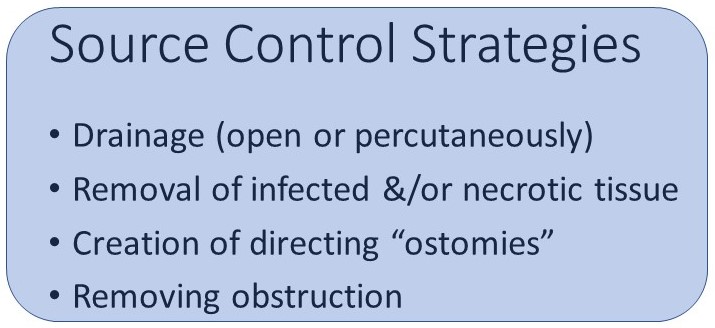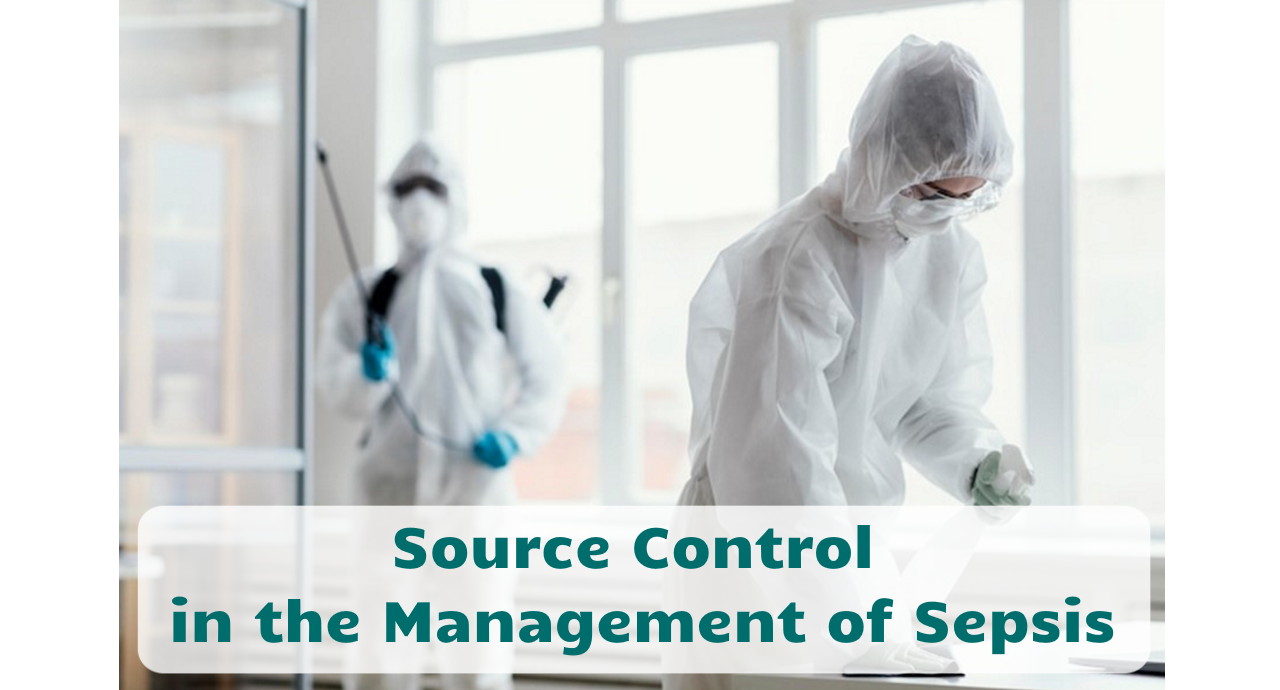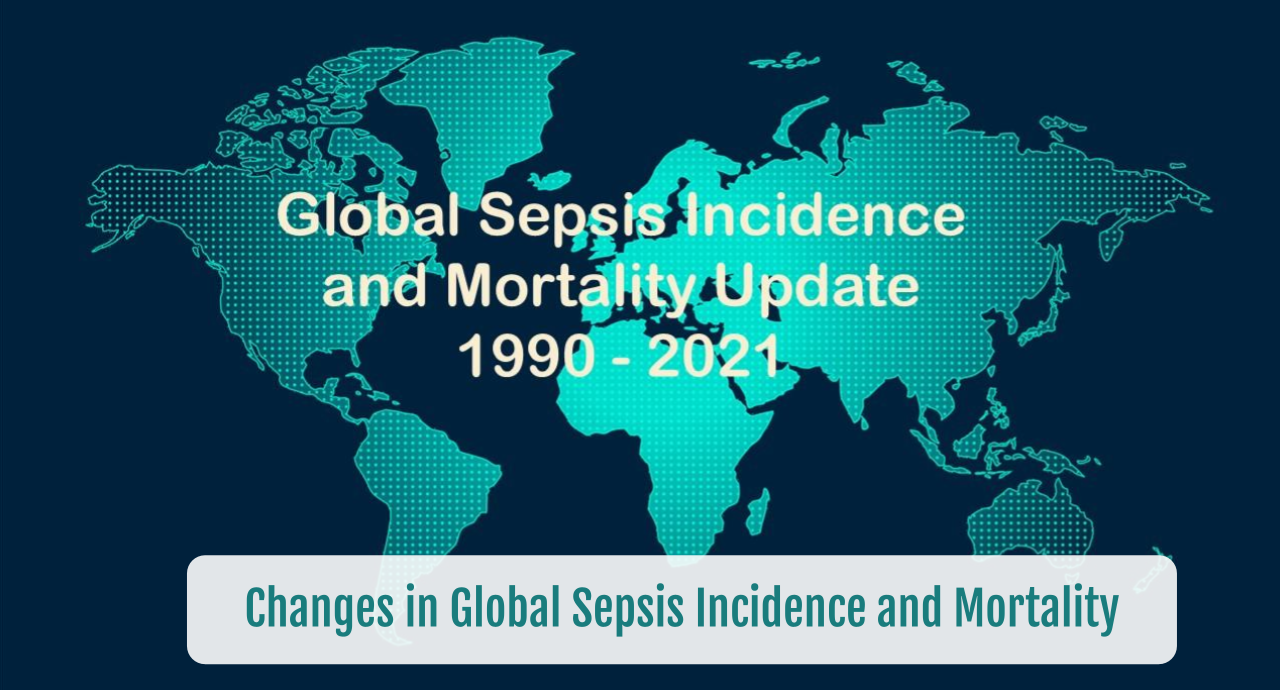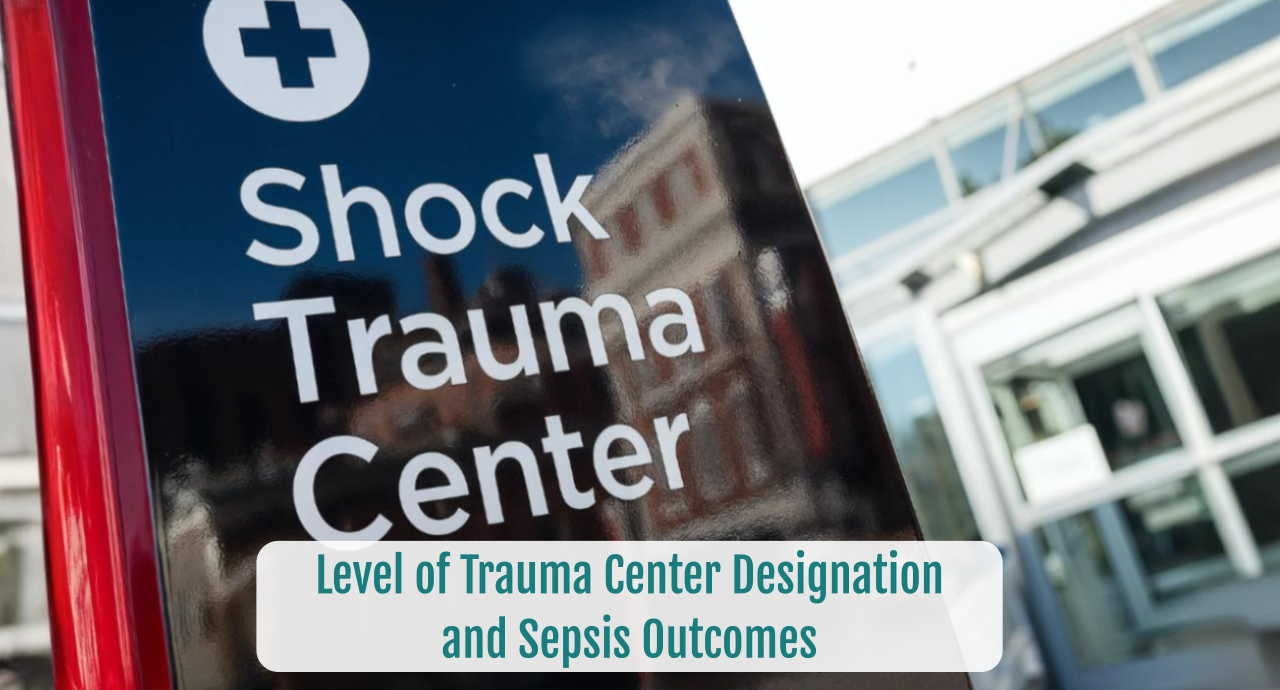Source Control in the Management of Sepsis
SUMMARY
- Source control is a major determinant affecting outcomes in patients with sepsis.
- The need for source control should be linked into the diagnostic process of sepsis patients.
- Source control should be considered in every sepsis patient, but it may not be necessary to control a source of infection in all patients.
REVIEW
- Difficulties obtaining source control in sepsis patients include:
- It’s definition
- The optimal timing of source control
- The lack of standardized methods for source control
- Avoidance or delay of source control is associated with poor outcomes.
- Source control strategies include:


CONSIDERATIONS OF SOURCE CONTROL:
- Source Control Sites:
- Abdominal infections
- Blood Stream Infections
- Central Venous Catheter
- Patient Factors – numerous factors play a role
- Severity of illness (hemodynamics, respiratory, metabolic)
- Coagulation
- Location & extent of infection
- Ongoing contamination
- Risk of collateral damage
- Avoid additional damagery strategy ma
-
- In some situations, a temporary be preferred
- Definitive interventions should occur when patient’s physiologic condition has improved.
-
- A failed attempt at source control
- Ongoing infection
- Incomplete source control
- Ongoing contamination
- Combination of items
CONCLUSIONS
- Appropriate source control is a key factor in sepsis management.
- Without adequate source control, clinical stabilization or improvement may not occur.
To receive articles like these in your Inbox, you can subscribe to Sepsis Program Optimization Insights.
Erkan Hassan is the Co-Founder & Chief Clinical Officer of Sepsis Program Optimization where he designs & oversees the implementation of solutions to optimize sepsis programs.
To discuss your organization’s Barriers of Effective Sepsis Care, contact Erkan by phone (844) 4SEPSIS (844-473-7747), email (erkan@spo.icu), or video chat.





